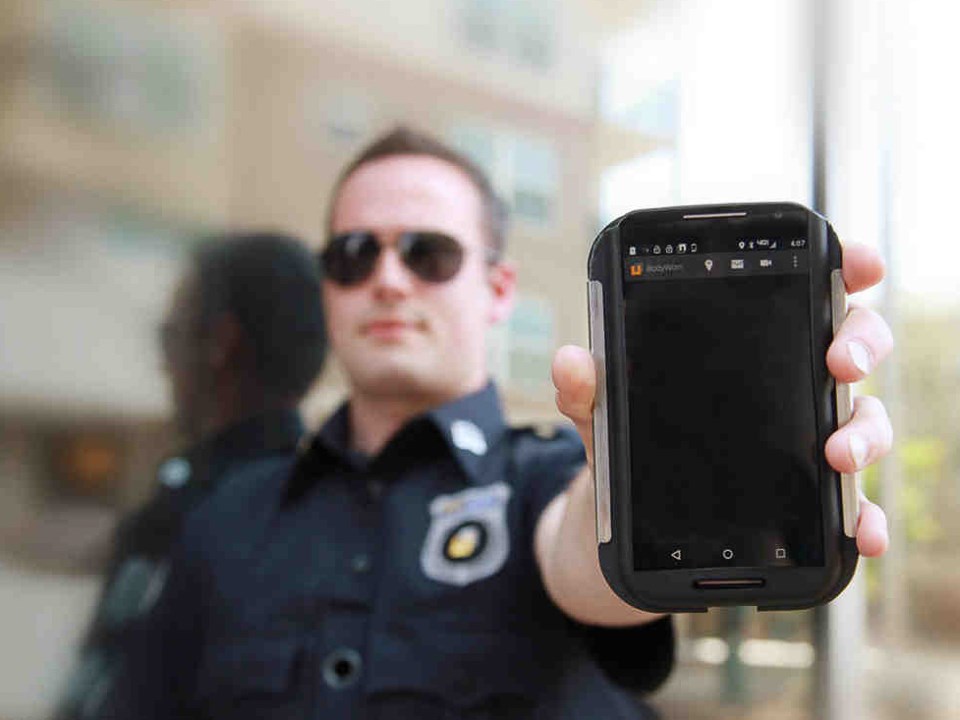Across the Tri-Cities this summer, human-bear conflicts have risen to the point where some residents are deciding to take matters into their own hands.
Earlier this week, three people were arrested north of Mundy Park on charges of obstructing conservation officers as they attempted to deal with a family of bears habituated to humans and their garbage.
Tony Faccin, who said he filmed part of the encounter before he was arrested, later had his phone confiscated by conservation officers under the suspicion that it contained evidence relating to the obstruction charge.
The episode has led many on social media to question just how and when an officer can confiscate someone’s mobile phone — and for those on the losing end, how to get it back.
“If [an officer] arrests somebody, and there's a phone on them, [they] are permitted to search and seize that phone for the purposes of collecting or preserving evidence related to the offence,” Kyla Lee, a Vancouver criminal lawyer, told The Tri-City News.
That has been the case since 2014 due to a Supreme Court of Canada ruling that applies to peace officers — meaning RCMP, municipal police and B.C. conservation officers, among others.
After he was arrested, Faccin said he was in the back of a police car when an officer asked Faccin to show him the video. Faccin said after he unlocked his phone and accessed the video, another officer took it out of his hand.
“I think it was just a ploy to get me to unlock my phone,” Faccin told The Tri-City News.
If Faccin’s account is accurate, that could be a problem for the officers involved, according to Lee, who said officers are allowed to seize a mobile phone but they aren’t allowed to compel a person to unlock it.
“You can't force the person to to give you evidence against them. Now, if the person consented, if [the officer] said, ‘Hey, will you unlock your phone?’ and they consented and unlocked it, there are additional legal obligations on the officer to say, ‘You don't have to. You have the right to talk to a lawyer before you do this,’” said Lee.
If the consequences of unlocking your phone are not made clear by the officer, any evidence on the phone could be found inadmissible in court, she added.
The consequences for officers breaching this protocol are small, said Lee, noting that officers might undergo retraining. On the other hand, if an officer doesn’t have to send a locked phone back to a forensic team, it could save valuable time.
After 90 days with the phone, police are compelled to either return the device or apply to a court for an extension, Lee said, noting such applications are usually granted because the police say the forensic lab is really backed up and they need more time to unlock the phone. Only in the most extreme cases — those involving terrorism, murders or gang activity — have police approached technology companies looking for backdoor entry to a device.
“Google and Android have said, ‘We're not investigators for the police, we're not participating in this,’” Lee said, adding Canadian law has provided some legal support to companies refusing a backdoor key because it would apply to more than just one phone.
Lee said every week, she deals with clients who have had their phone confiscated by police, and the best she can tell them is to wait the 90 days and, at the end of that period, hope police won’t file for an extension.
“In theory, that person could file a complaint with the Information and Privacy Commissioner, which would be investigated in like, you know, a year and a half from now, they might get some type of damages,” Lee said.
Most of Lee’s cases relate to offences while driving but when it comes to cases involving animals, she has seen people who would not usually find themselves in trouble with the law get emotional and end up having their phone confiscated.




